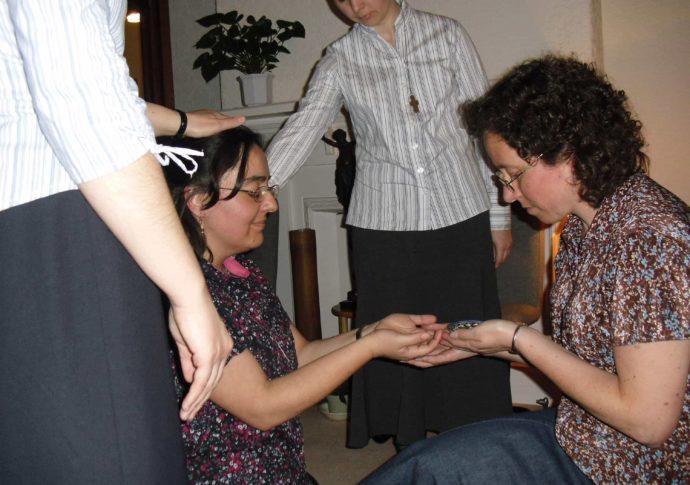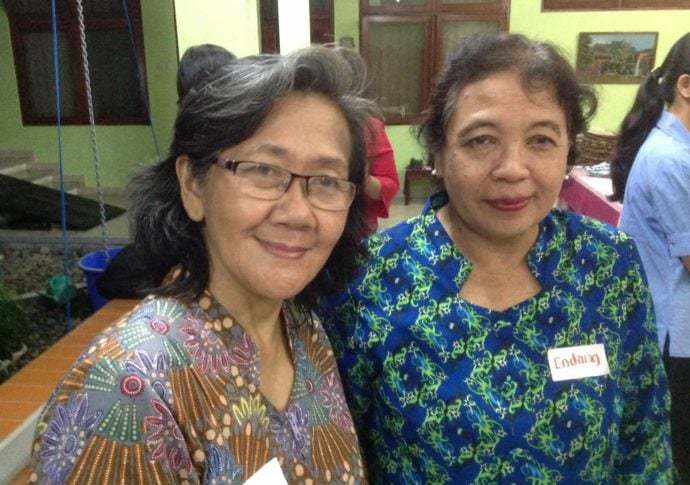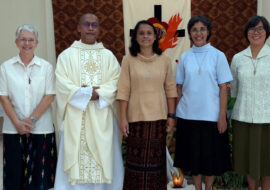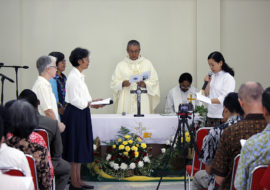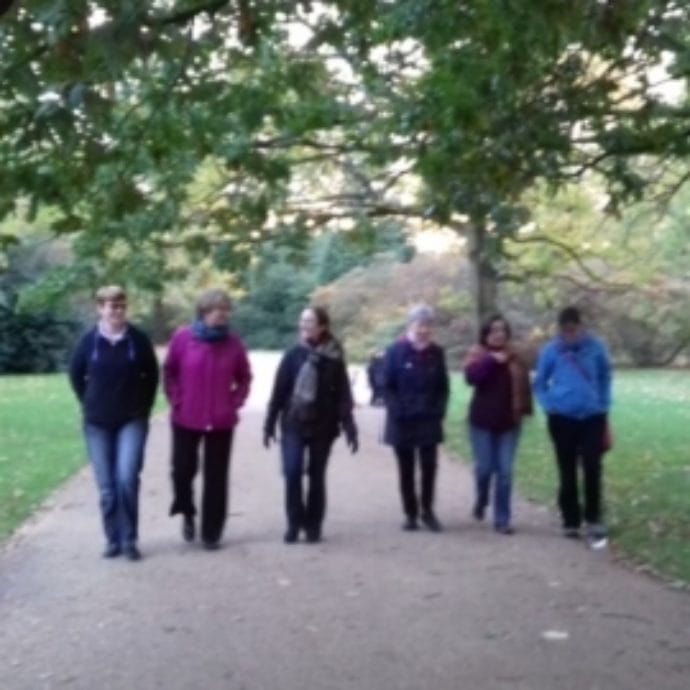A reflection by Sr Audrey fcJ on how the COVID-19 pandemic is questioning our views on productivity and our life choices.
First appeared in her blog Surprising Grace
A friend of mine has a 2.5-year-old son who used to go to pre-school on weekdays while both his parents worked. When the circuit-breaker measures against COVID-19 recently took effect in Singapore, he and his parents found themselves – like most Singaporeans – confined to the house. As part of the nation’s home-based learning drive, his pre-school teacher emailed worksheets to his parents every day, which they ignored for a week while trying to juggle working from home and taking care of their toddler. Then, the teacher called and asked them to submit the worksheets. Nowadays, the parents (who thankfully still have a dose of common sense) take turns to do the daily worksheet and then let the child doodle on it before submitting it online, in what they call a “team effort”.

When I heard this story, I didn’t know whether to laugh or cry. The idea of 2.5-year-olds having homework to submit everyday – not to mention in the middle of a worldwide pandemic – simply boggles the mind. Stories also abound of stressed-out parents trying to organize intensive online learning for children of different ages, with limited equipment, all the while still being expected to work at the same level of productivity as they did before the lockdown – the bulk of the work, of course, falling on the shoulders of women. One article I read about this phenomenon had a section aptly titled The Quest for Productivity at All Costs (surely you can imagine what costs this would include).
Some questions come to mind at this point. What is the point of all this stress and whirlwind of activity? is one of them. How on earth did we get to this point? is another. But more pressingly, perhaps: Why did we make productivity our god, and lose sight of the human?
The constant, urgent drive I feel to be productive is something I first became aware of when I joined religious life 6 years ago – when I was first forced to let go of that as a marker of my own self-worth – and is something I have continued to struggle with since (as in previous posts on this blog like this one). Working from home in this pandemic has brought that feeling back to the fore as I struggle with the inability to work at the same level as before. Seeing that same drive for productivity explode so acutely now on a national level in Singapore (though I am sure this goes beyond just one country and is perhaps a by-product of modern society) has made me more aware of the systemic causes of this personal struggle, and how the desperate need for productivity has pervaded all levels of our society.
While productivity is unquestionably a value to be lauded at a certain level, the current state of things suggests that it has grown to eclipse all those more essential things that make our lives matter. This pandemic and the disruption it has caused has opened the way – or forced us, really – to step back and re-evaluate our ordinary ways of doing things. Pope Francis articulated this beautifully in his “Urbi et Orbi” message on March 27:
[This] storm exposes our vulnerability and uncovers those false and superfluous certainties around which we have constructed our daily schedules, our projects, our habits and priorities. It shows us how we have allowed to become dull and feeble the very things that nourish, sustain and strengthen our lives and our communities. The tempest lays bare all our prepackaged ideas and forgetfulness of what nourishes our people’s souls; all those attempts that anesthetize us with ways of thinking and acting that supposedly “save” us, but instead prove incapable of putting us in touch with our roots and keeping alive the memory of those who have gone before us. We deprive ourselves of the antibodies we need to confront adversity.
The tempest lays bare all our prepackaged ideas and forgetfulness of what nourishes our people’s souls; all those attempts that anesthetize us with ways of thinking and acting that supposedly “save” us… We deprive ourselves of the antibodies we need to confront adversity.
Pope Francis, Urbi et Orbi message, 27th March 2020
Strangely, instead of accepting the disruption that the pandemic brings and reflecting deeper on what its message might be to us, both individually and collectively, some of us seem hell-bent on forcing our usual patterns onto the changed fabric of our lives and societies, regardless of whether the fragile fabric itself will still hold. Why do we do that? Are we afraid of what we might find – or not find – when we look beneath the surface of our everyday productivity?
This is certainly a question I asked myself in 2014, and something I still ask. What is left – and who am I – when all that I do is stripped away? Who are we?
The Christian scriptures, with its images of humanity as beloved children of an infinitely loving God, offer much to ponder and relish as we seek to understand what it is that gives our lives meaning and worth. A saying by the Buddhist monk Thich Nhat Hanh has also been nourishment for me of late:
We have a tendency to think in terms of doing and not in terms of being. We think that when we are not doing anything, we are wasting our time. But that is not true. Our time is first of all for us to be. To be what? To be alive, to be peaceful, to be joyful, to be loving. And that is what the world needs most.
Thich Nhat Hanh, in ‚The Art of Living‘
 While the truth of this resonates with me, there is still the hard fact that those of us who struggle to work in these strange times are being paid not to “be” but to “do”. What do we make of that? Perhaps it also points to the need to build an economy that is more centered on people rather than on what they produce. In any case, this pandemic has also shown us how we have valued wrongly in today’s economy: such that those who perform essential services for the rest of us, like cleaners and grocery store workers and garbage collectors, have been exploited and paid pittances not at all commensurate with the value of their service to our communities. Perhaps this pandemic also offers us an opportunity to consider putting into practice that core principle of Catholic social thought on labour: that the person is more important than the work.
While the truth of this resonates with me, there is still the hard fact that those of us who struggle to work in these strange times are being paid not to “be” but to “do”. What do we make of that? Perhaps it also points to the need to build an economy that is more centered on people rather than on what they produce. In any case, this pandemic has also shown us how we have valued wrongly in today’s economy: such that those who perform essential services for the rest of us, like cleaners and grocery store workers and garbage collectors, have been exploited and paid pittances not at all commensurate with the value of their service to our communities. Perhaps this pandemic also offers us an opportunity to consider putting into practice that core principle of Catholic social thought on labour: that the person is more important than the work.
But if this talk of social change sounds all too much to digest, perhaps we can start with ourselves: by being exceedingly kind to ourselves and those around us in these uncertain times, recognizing that we are far more important than anything we do or don’t do!
Read other contributions by Audrey fcJ on our website.
Photo credits: Minato ku (Wikimedia Commons licence); Kat Jayne (Pexels)









